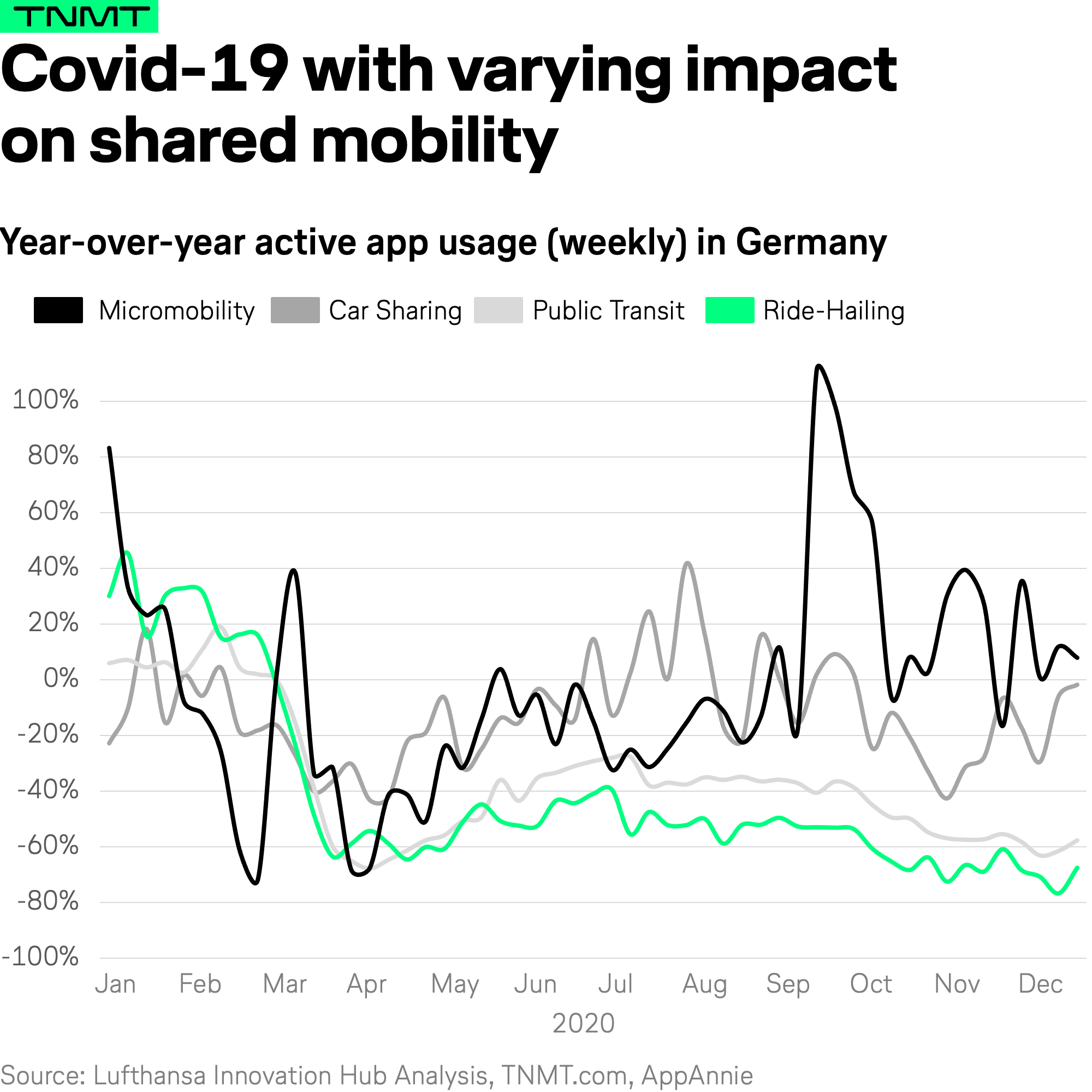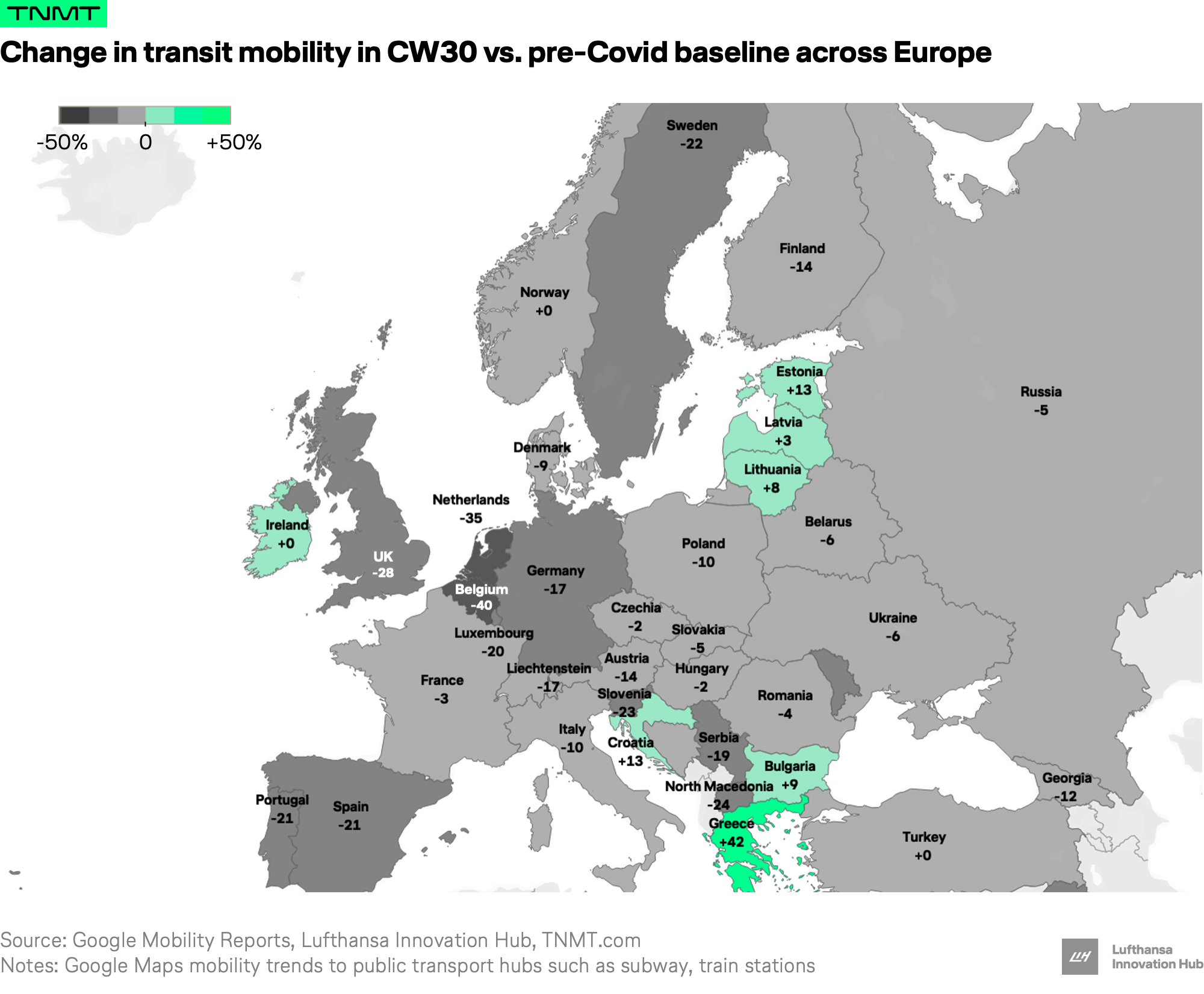This interesting Bloomberg article caught our attention this week. The piece challenges whether shared mobility, like ride-hailing, will survive Covid-19.
The reasoning is straightforward: the pandemic has made the idea of sharing a car with strangers a lot less appealing.
As people have developed a new sense of hygiene standard, these attitudes might prevail even when the virus eventually recedes. This would certainly be worrisome news for the future of urban transportation.
For a long time, mobility companies have argued that shared mobility would become a key component of cities’ future transportation networks and help curb congestion.
But if people continue to avoid shared transportation in the years to come driven by deeply rooted infection concerns, this most likely means that many will return to using their own car for getting around town.
The concept of shared mobility would be badly shattered.
Let’s look at the data
How much has shared mobility really suffered throughout the pandemic?
We turned to our Travel and Mobility Category Heatmap in which we track the weekly app usage of major transport modes in Germany to check whether we can confirm the demise of shared mobility.
Is this really happening?
The answer is: Yes and no. Depending on your definition of shared mobility.

Yes, because shared mobility in the form of ride-hailing is, in fact, down significantly in terms of usage—more than 70% at the end of 2020 vs. the year before.
Interestingly, the same holds true for public transit (even though not labeled “shared mobility” in the modern sense).
On the other hand, micromobility like bike and e-scooter sharing as well as car-sharing (think car2go or Share Now as it’s called today) have proven to be crisis-resilient with app usage returning or even outperforming pre-pandemic levels.
The big difference seems quite obvious: with micromobility and car-sharing, the vehicle (whether it’s a scooter or car) is shared sequentially with strangers instead of simultaneously.
The former type of sharing is perceived safer, and, therefore, demand returned quickly.
The bigger picture
We conclude, it’s definitely not the case that all shared mobility is in jeopardy.
But Bloomberg rightfully goes one step further by questioning the viability of the most promising futuristic mode of shared mobility, autonomous vehicles (AVs).
Similar to the ride-hailers, most aspiring AV companies have long capitalized on the feel-good appeal of the sharing economy.
The Cruise Origin, for instance, was designed to be shared, with futuristic driverless pods where passengers face one another in almost living-room-like environments that feel quite intimate.
Asking people to share rides with strangers in autonomous vehicles may face exactly the same resistance that ride-hailers currently experience.
In this case, the “heaven” of shared trips that AVs would bring would eventually turn into the “hell” of private ones, resulting in even more crushing congestion than today.













